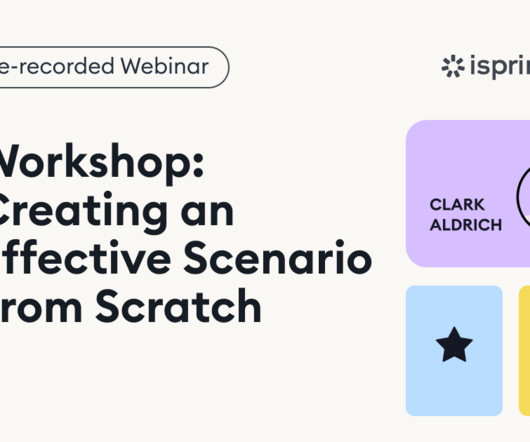Nudge Theory: Tips To Enhance Corporate eLearning Outcomes
Infopro Learning
AUGUST 5, 2022
This led to recognizing an essential aspect of behavioral science known as nudge theory or nudge learning. Nudge theory in practice subtly influences the behavior and decision-making of the learners. It may be done by using strategically placed prompts to encourage specific behaviors.






















































Let's personalize your content